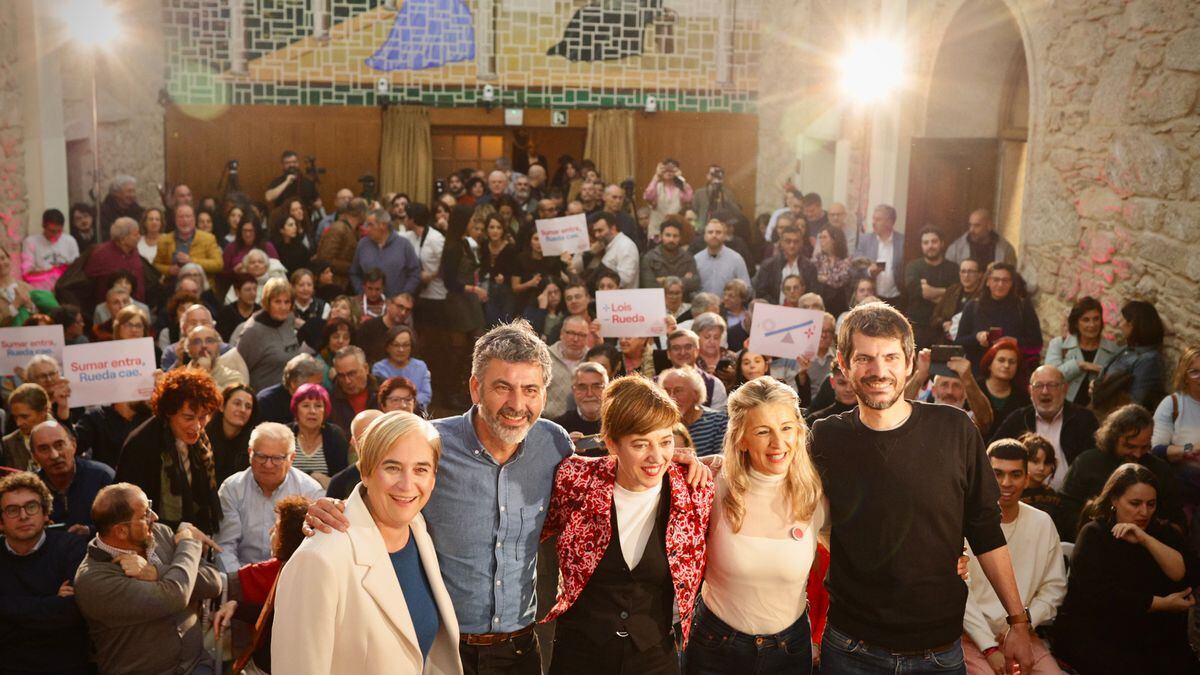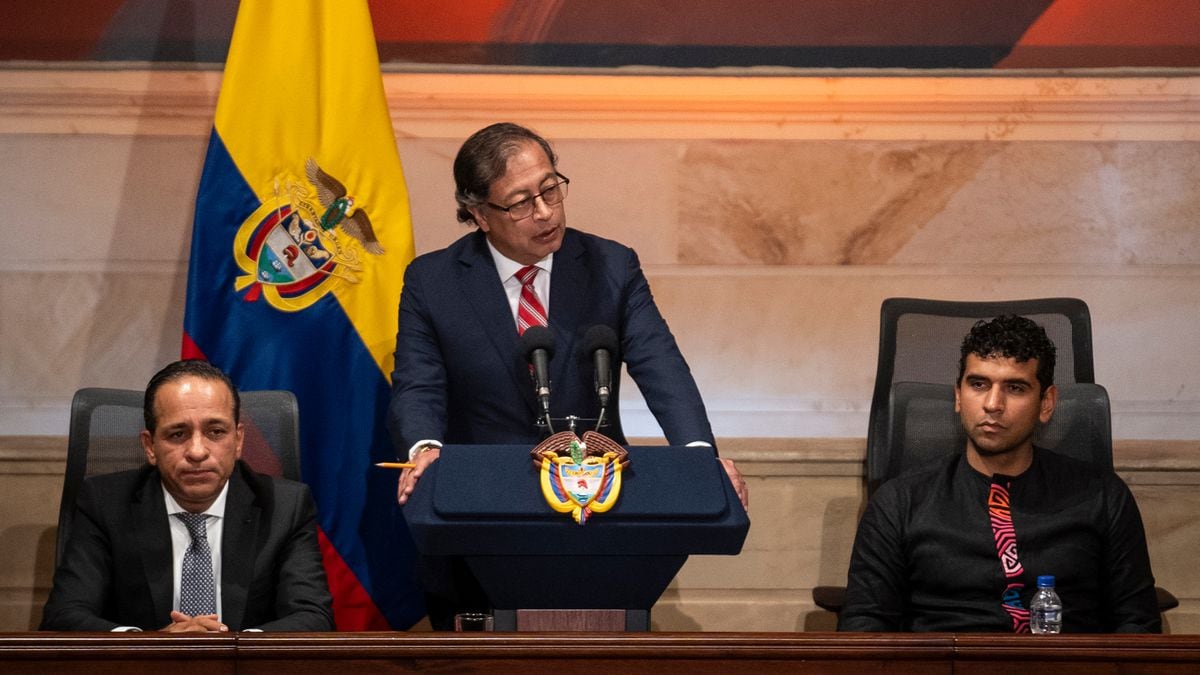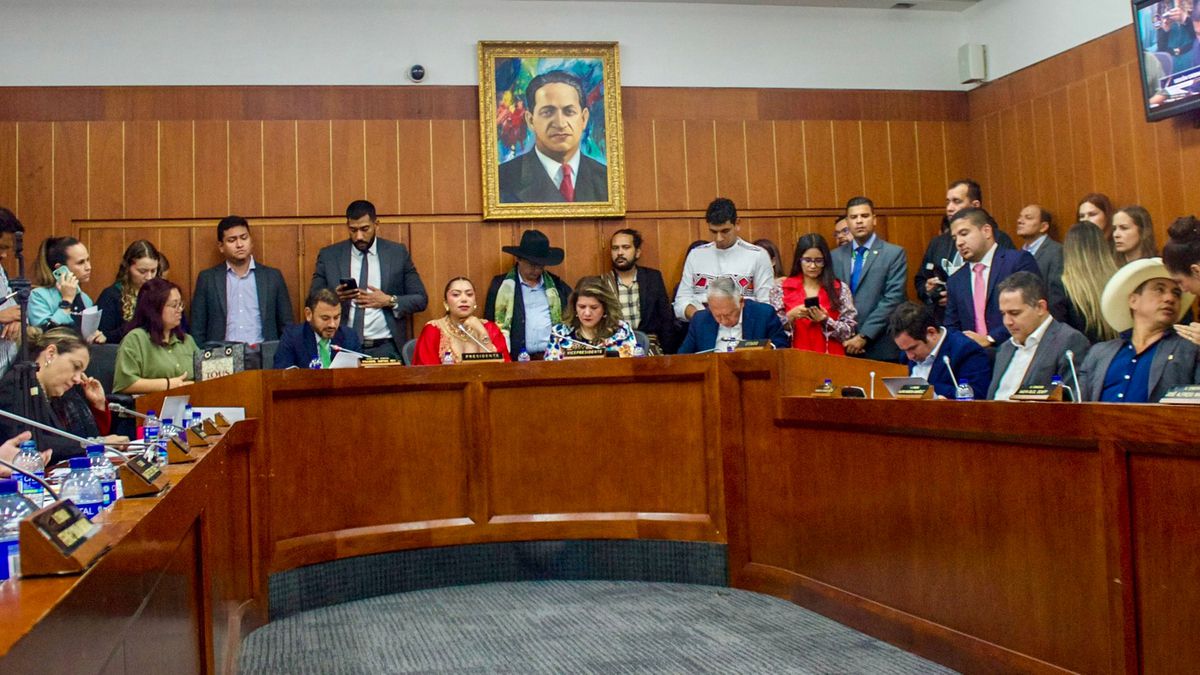Joaquín Pérez Rey, Secretary of State for Labour, in March 2021 at the Ministry of Labour.© Luis Sevillano
Joaquín Pérez Rey (Madrid, 49 years old) is the
left hand
of the second vice president, Yolanda Díaz, who has led the bulk of the negotiation for nine months with the employers and the unions to achieve the new labor agreement.
His bet is still because the new reform, which he calls the most relevant of this Government in the entire legislature, comes out with the investiture partners.
He doesn't have a plan B.
Ask.
Right now, do you have a guaranteed vote from any party, even if it is in private, to add to the 154 that PSOE and United We Can have to carry out the labor reform in the plenary session on February 3?
Answer.
In the negotiation process there are significant advances that suggest that the reform will go ahead with the support of the coalition partners.
P.
You and Yolanda Díaz insist that you want this reform to be validated in Parliament with the investiture partners, but how can that happen if both ERC, PNV and Bildu have already advanced some red lines in which they are not willing give up anything?
R.
I do not think there are red lines.
We are listening carefully to the partners and what they talk to us about on many occasions is about elements that have not been dealt with in the social dialogue and are foreign to that agreement, about future projects, and it is perfectly compatible to respect the agreement with other elements that will have to face.
This is not the last rule that the Ministry of Labor will carry out.
P.
Is the labor reform a personal and political project of Yolanda Díaz?
R.
This is the reform that intends to deal with 20 million temporary contracts signed in 2019, it is the one that eliminates eight million contracts that were for work or service during this time, it is the one that intends for workers to start charging for the sectoral agreements and that supposes an increase of more than 5,000 euros in their salary, it is the one that does not want to abandon more than seven million precarious workers, it is the one that recovers collective bargaining, the one that tries to avoid dismissals, it is the collective project most important of our country, it is a commitment of dimensions of a great pact between the social partners and a great pact of the country. I also don't know Yolanda Díaz's personal projects.
P.
What has happened to them with ERC and with its spokesman Gabriel Rufián, is that now they are not from the left or partners?
R.
We maintain a fluid and very good relationship with Esquerra and the good thing would be if we talked about content here and that we did not make ideology or politics in an electoral key.
P.
Is it an attack of political jealousy or is the reform of Díaz really a make-up that hardly changes anything about that of the popular Fátima Báñez?
R.
he is telling all the current temporary workers that they have to be stable, he is avoiding dismissal in a real way by giving alternative instruments, he is telling those who had not received severance pay in their lives because they were trapped in the temporary situation that they have to abandon that statute to be indefinite.
A reform supported by social dialogue, something that had not happened in the last 40 years in Spain.
The material dimensions and the elaboration procedure make this one of the most decisive reforms and the most important norm of the legislature.
A reform supported by social dialogue, something that had not happened in the last 40 years in Spain.
The material dimensions and the elaboration procedure make this one of the most decisive reforms and the most important norm of the legislature.
P.
The great complaint and obstruction for the PNV, and also for EH Bildu, is that the prevalence of regional agreements over state agreements is not ensured. You maintain that this is already guaranteed in the Workers' Statute and approved by all the social agents in the Basque labor framework. Do the PNV and Bildu not know that or is it that they want it to be clearer and less subject to interpretation and is it something that can be yielded to at least achieve the abstention of the PNV?
A.
The prevalence of regional agreements over state agreements has been in labor legislation since the mid-1990s. And in Euskadi there is a Basque labor relations agreement signed by all the organisations.
PNV and Bildu know this, but what PNV says is that it has some doubts about whether this agreement could in any circumstance be affected by other levels of negotiation.
We understand that, since it has the support of all the interlocutors, including the CEOE and the Basque employers' association, those doubts must be dispelled because nobody questions the enormous deployment of that Basque agreement.
This is what we keep talking about.
P.
And the Basque employers have not informed the CEOE that this agreement does not touch a comma what was agreed and that therefore they do not have to threaten to get out of the agreement if that prevalence were contemplated in another norm?
R.
It is that this content is foreign to what was discussed in the social dialogue, it was not discussed and since it is not in the pact it is not a matter of leaving or entering.
The PNV's concern is about another element, which will have to be studied and which seems reasonable.
And what the CEOE employers know is that this agreement is signed to deploy all its effectiveness.
P.
You in Labor do not want to explore the way that the PSOE insinuates of approving that norm with Citizens and other small and right-wing parties because they argue that this model is the opposite of yours, but Cs says that this reform is very similar to the closed between Pedro Sánchez and Albert Rivera of 2016.
R.
It is a very creative interpretation.
Citizens wanted to call all permanent temporary workers, which would have been a large-scale make-up, what they wanted was to lower severance pay by calling it an Austrian backpack, what they wanted was to limit the rise in workers' wages.
The position of Ciudadanos and this reform have nothing to do with it.
His willingness to support her is a political turn and one of the most unusual journeys in memory.
P.
Have I seen a complaint from the general secretary of the PP that warns that with this reform the career of up to 800 researchers in Castilla y León will be cut short now that we are campaigning in that autonomy?
R.
I am very surprised that the PP makes a flag of the precariousness in the University in the research system.
This historic reform is not only intended to stimulate the private sphere but also the public sphere and in the Universities and research to solve the drama of researchers trapped in precariousness.
P.
By the way, it is you and Yolanda Díaz, the second vice president, who negotiate, or also for the socialist sector of the Government, the Minister of the Presidency, your Secretary of State, the Deputy Secretary General of the PSOE and your Secretary of Organization and also the spokesman for the PSOE in Congress?
R.
This is a negotiation led by the second vice president of the Government, which she leads personally and with great effort, as she has done in other social negotiations.
There is no doubt that it is headed and piloted by Yolanda Díaz and the Díaz reform can only be negotiated in the parliamentary sphere who has also negotiated it in the social dialogue.
Of course, with absolute coordination with the coalition partner.
P.
Is there a plan b if this reform fails and does not prosper in Congress?
What will they do?
R.
It is a scenario of impossible realization.
Which I do not consider in any case.
It is impossible for the most important change of direction in labor relations in our country not to have the support of Parliament when it has managed to count on what seemed impossible social support and I have no doubt that it will have that of the political forces of the investiture bloc .




/cloudfront-eu-central-1.images.arcpublishing.com/prisa/RK3AI2H26NFTRJ3VH3EVPP573E.jpg)



